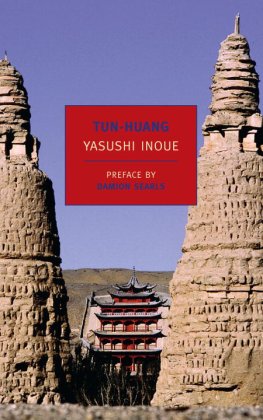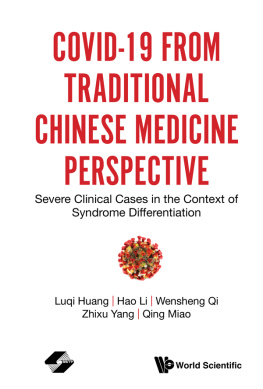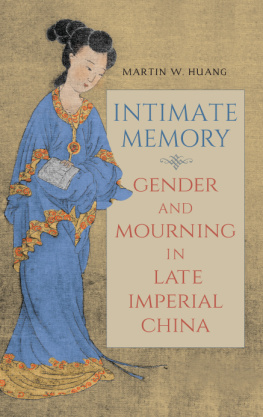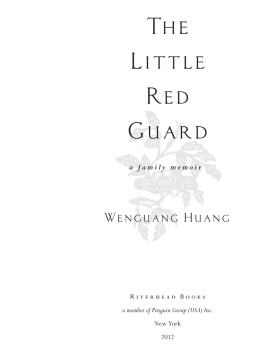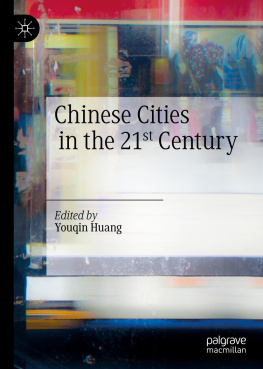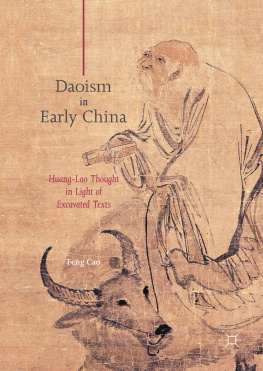Broadening the Horizons of Chinese History
Broadening the Horizons of Chinese History
Discourses, Syntheses, and Comparisons
Ray Huang
An East Gate Book
First published 1999 byM.E. Sharpe.Inc
Published 2016 by Routledge
2 Park Square, Milton Park, Abingdon, Oxon 0X14 4RN
711 Third Avenue, New York, NY 10017, USA
Routledge is an imprint of the Taylor & Francis Group, an informa business
Copyright 1999 by Taylor & Francis. All rights reserved.
No part of this book may be reprinted or reproduced or utilised in any form or by any electronic, mechanical, or other means, now known or hereafter invented, including photocopying and recording, or in any information storage or retrieval system, without permission in writing from the publishers.
Notices
No responsibility is assumed by the publisher for any injury and/or damage to persons or property as a matter of products liability, negligence or otherwise, or from any use of operation of any methods, products, instructions or ideas contained in the material herein.
Practitioners and researchers must always rely on their own experience and knowledge in evaluating and using any information, methods, compounds, or experiments described herein. In using such information or methods they should be mindful of their own safety and the safety of others, including parties for whom they have a professional responsibility.
Product or corporate names may be trademarks or registered trademarks, and are used only for identification and explanation without intent to infringe.
Library of Congress Cataloging-in-Publication Data
Huang, Ray.
[Fang kuan li shih ti shih chieh. English]
Broadening the horizons of Chinese history : discourses, syntheses, and comparisons / Ray Huang.
p. cm.
An East gate book.
Includes bibliographical references and index.
ISBN 0-7656-0347-0 (alk. paper).
ISBN 0-7656-0348-9 (pbk.: alk. paper)
1. ChinaHistory. 2. ChinaCivilizationWestern influences.
I. Title.
DS736.H779713 1999
951dc21 98-39820
CIP
ISBN 13: 978-0-76560-348-7 (pbk)
Contents
Time changes, and lately at an accelerated pace. The dawn of the present century saw Marconi still toying with transoceanic signals, and the Wright brothers managing to float in the air for no more than several hundred yards. Now, less than a hundred years later, long-distance travel by air is commonplace and FAX machines have become essential to home offices. Circumstances compel historians to work overtime. If we hesitate, chances are that our fresh ideas, even before being proofread, will be overtaken by events.
Some fifteen years ago, when I, for the first time, indicated that the protracted revolution in China is about to come to a fruitful conclusion, I received a mild reprimand from certain critics who felt that I was making a hasty statement. Today I would say that, on balance, the risk stemming from timidity far exceeds that coming out of audaciousness, so far as Chinese history is concerned.
In retrospect, the violent struggle in China in this passing century can be connected to the rapid advancement of technology in the outside world; it exerted an unbearable pressure on that country; overnight she discovered that she had to restructure herself in order to survive. At the conclusion of World War II Theodore White wrote: China must change or die. The present volume testifies in support of his assertion.
The story can be worked out elaborately or presented summarily. The application of modern technology, in terms of jet liners and FAX machines and so forth, is hinged on an efficient economic workhorse. Capitalism might be an abused word; but, regardless, at this moment it seems that its most prominent feature is not class struggle, but deficit financing. The nations resources must be utilized to the full to sustain the industrial growth. Based on Western experience, the application of such a system had to be inclusive and exclusive, encompassing both private and public sectors, and through taxation and public debt, especially governmental finance. A prerequisite for the universal dynamism is that the production and distribution instruments in the society must be well coordinated, all components made interchangeable, or else, the nation cannot even be mathematically managed, less to enter into any kind of competition. Traditional China, employing a pool of literati to administer the affairs of millions of peasants, was nowhere close to meeting the requirement.
China has paid a dear price indeed for the changeover. As the dust begins to settle, we realize that doctrinal agitation provides only the locomotion for the revolution; the inner logic of the sequence of events is a different matter; it can only be ascertained afterwards, objectively. I am hereby laying down the proceedings as they occurred, reviewed from various angles. While there are still personal touches in the material, I trust that as a whole it faithfully represents the fait accompli of the century: Chinese history has merged with Western civilization.
R.H.
February 22, 1999
Broadening the Horizons of Chinese History
In the past several decades I have spent some time examining the financial management of the Ming dynasty. If I must single out one element as its most distinctive feature, I would say that the lack of logistical capacity at the middle echelon of the government was rather astounding. Unlike the Tang and Song, which assigned transportation commissioners to the field, who in turn accumulated material and funds in large geographical areas and disposed of them on broad directives from the imperial court,1 the Ming system on the whole omitted such an operation.
Under the Ming dynasty the empires financial resources were broken into numerous small segments. Lateral transactions between the revenue collecting agency and the disbursing agency were kept at the lowest level possible. Often the fiscal responsibility fell on the taxpayers who made the interprovincial deliveries. Likewise, on the Grand Canal the army personnel who operated the grain boats, down to squad leaders and first sergeants, were held responsible by imperial granaries for the last peck of rice in their custody. Thus the nation was thickly covered with short but crisscrossing supply lines. A frontier army post might receive supplies from a score of counties, a county might also make deliveries to dozens of installations.2 The Ministry of Revenue ceased to be an operating agency; it was an accounting office, undoubtedly the largest in the world by then.
This basic organization should alarm the present-day reader for its negative influence over Chinas growth and development in modern times. So long as the aforementioned mode of governmental logistics prevailed, the service sector of the national economy had little opportunity to take the first step. Transportation and communication, being delivery vehicles, could not have gone ahead by themselves at a time when the materials and goods were not even packaged for consolidated delivery. Banking and insurance, instruments for commercial transactions, could not have thrived when the potentially largest customerthe governmentacted so much in contradiction to commercial practice. The legal service supporting a modern economy of course had no reason to exist when business activities requiring court protection at such a level had not yet come into existence.






